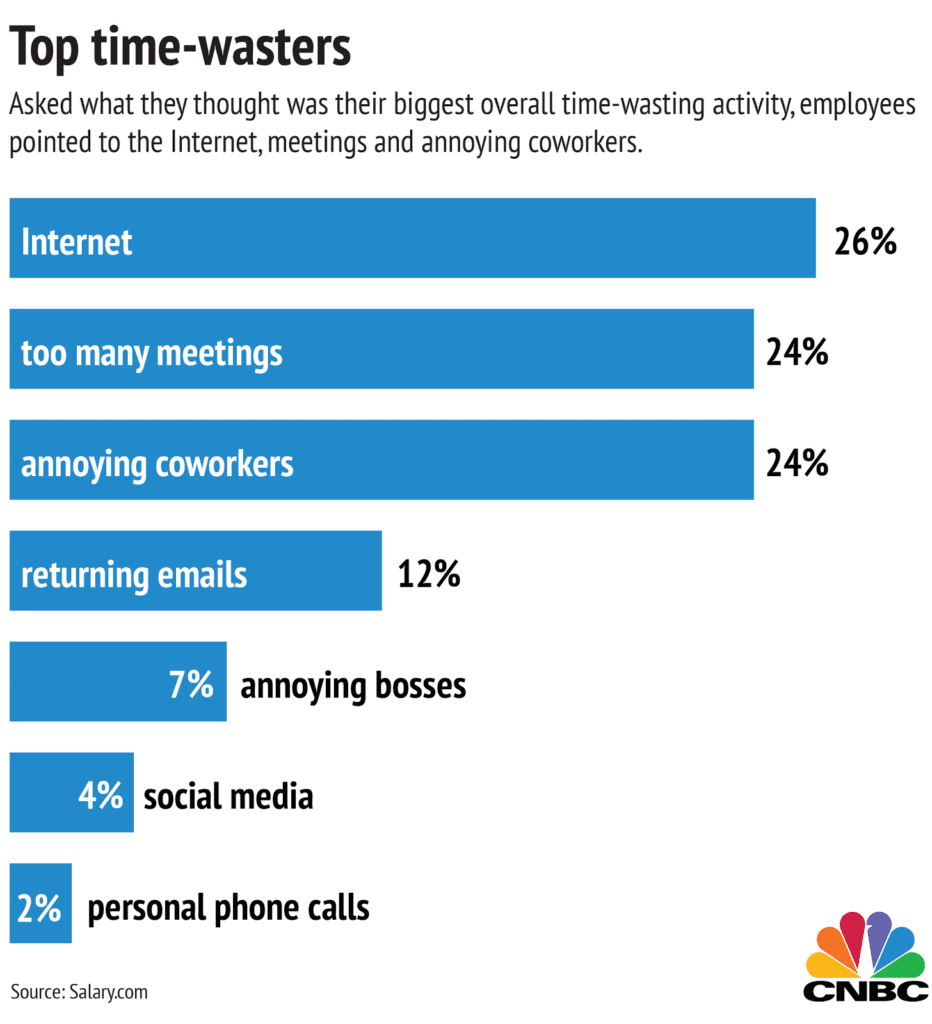After Reading This Article You Can Launch Your Own Side Business Easily
The majority of people desire to Launch There Own Side Business.
Owning a business typically entails taking charge of one’s own destiny. Beginning a business offers a great deal of independence.
It’s also simpler than before. We are in the heyday of entrepreneurship right now, when anyone can launch a company.
However, there is an issue: full-time jobs.
If your workday runs from 9 to 5, you’ve undoubtedly Struggled to Find Time for Hobbies or Interests Outside of Work.
You most likely find it difficult to spend enough time with your family or even to find a moment to relax.
Does this ring familiar to you at all?
You’re not the only one if it does. Thousands of people who believe their jobs are preventing them from starting a business have spoken with me about this.
What if I told you, though, that you don’t have to let your business stop you?
How would you feel if I told you that you could work a full-time job and still grow a business?
And what if I told you that you didn’t have to sacrifice a lot or go nuts to accomplish that?
All of it is true, believe it or not.
Even if you work a full-time job, I’m going to teach you eight serious ways to find extra time to launch your own business. Some of the best businesspeople I know have utilized them, and I have no doubt that they will work for you as well.
1. Verify your legal freedom and clarity.
To start with, I don’t practice law and I don’t portray one on television.
This part will therefore be brief.
However, legal matters are crucial. Hence, ensure that you are doing in a way that is permitted by law and that you are protected.
The majority of firms have policies prohibiting employees from having any kind of conflict of interest, which may include beginning a business in the same field or establishing a side venture.
Your contract will contain a reference of these guidelines. You should also check any noncompete or nondisclosure agreements you may have signed.
Losing your job is the last thing you want to happen to you. Read your agreements carefully and with your employer if you are unsure.
2. Find the Time You’ve Lost Throughout the day.
“I don’t have enough time” is the most common concern I hear from full-time employees who want to launch a business.
That is somewhat accurate.
The typical employee doesn’t have a lot of free time, particularly if they are responsible for a family or have other commitments that take up their time.
Vocativ discovered that married men with jobs have roughly 3.6 hours of free time every day, compared to married women with jobs who have roughly 2.9 hours.

It is crucial that we set aside time each day for leisure pursuits. I’m aware that without taking regular breaks to unwind, I risk becoming a little Amazing.
But take another look at those figures. We get three to five hours of free time per day on average. What are you actually doing with that time?
If you’re like most people, watching TV takes up much of your leisure time.

To what extent, Though, do we adore TV?
According to Nielsen, the typical adult watches TV for five hours per day.
Consider this: We watch TV for five hours out of our three to five hours of spare time on a typical day.
Does the math look a little off to you?
Considering how many individuals watch TV while at work, those numbers appear very strange.
During working hours, an astounding 64% of employees watch online videos.
The typical worker loses time in other ways as well. Those who are sleep deprived, distracted, or unhappy can lose literally hours at work.
View this infographic to understand what I mean.

What’s the purpose of all this?
It’s possible that you’ve wasted hours of your day.
It is possible that you have enough time to launch your own business, even if it seems like you are working nonstop.
You’ll be able to be more productive and fit everything into your schedule if you can get back the time you lost.
To make up for the lost time, there are two methods.
The first is to get rid of time vacuums that aren’t needed. A time vacuum is precisely what it sounds like: a diversion from your own time.
While you won’t have to accomplish everything every day, there are some tasks that you will need to complete.
Here’s an illustration. In lean manufacturing, waste comes in seven different forms. We call this muda in Japan.

Muda is a word for wastefulness, utility, or futility.
During the day, how much muda do you have?
Muda often takes the shape of insignificant objects.
Perhaps you stand in line for coffee every morning for ten minutes. Alternatively, perhaps you simply organize everything in your workspace for thirty minutes each day.
You can replace or get rid of the items that are wasting your time for little to no purpose if you can identify them.
Regaining time can also be achieved by ceasing purposeful time-wasting behaviors.
I understand that sometimes you just have to cope with time-related challenges throughout your day.
However, we typically opt to waste time.
Everybody’s interpretation of it is unique.
Perhaps, like 26% of workers, you use the Internet far too much.

Alternately, perhaps you spend four hours a night watching Netflix.
Sorry to break the news to you, but it isn’t helpful. (This does not imply that you must give up Netflix; you may only need to make some little adjustments.)
You probably already know exactly what you do every day to squander time.
Reduce or stop engaging in those activities. Something has to go if it is a needless waste of time and does not improve your wellbeing in some manner.
On the plus side, you’ll have a ton more time each day to dedicate to your business—you just need to be honest with yourself.
And starting a business doesn’t require five extra hours a day. You can dedicate an entire day per month to your side gig, even if you can only dedicate an hour.

You can find some extra time in your day to rescue and employ for useful things, regardless of how long you have.
3. Maintain Attention when working on your side project.
Does this sound like you?
You at last find some time to launch your company. Assume it is one hour each day.
You work all day, take a short break, and then you start working on your business. However, you catch yourself daydreaming or multitasking.
You wind up accomplishing very little.
The majority of entrepreneurs operate in this manner, which is a very ineffective setup. If you’re not going to use the time you spend working on your business, why bother?
To expand your business, you must be focused for this reason.
The key to any good task is Focus.
Lack of attention will show in your work as a disorganized mess and in your performance.

Author Cal Newport discusses the distinctions between deep work and shallow work in his book Deep Work.
You most likely spend your days doing shallow job. Attending meetings, checking email, and making regular phone calls are a few instances of labor that is typically superficial.
On the other side, deep work helps you focus and complete tasks. Consider writing, research, or strategic planning.
The following infographic from Instaread outlines the variations between the two kinds of work:

You should be working deeper rather than faster.
It will take intense labor to yield results and assist you in reaching your objectives.
You won’t get many results if your labor is superficial. It resembles sprinting in place. Even if it seems like you’re making progress, you seem to be standing still.
If you are working on your own business for just an hour or two, deep work is very crucial.
To maximize the speed at which your business may grow, you want to spend that time on as little trivial tasks as possible.
Creating an extremely comprehensive system similar to this one could be beneficial if you struggle greatly with concentration at work:

Doing a lot of in-depth work may come naturally to you, or you may require a rigid timetable.
Whatever it takes, adjust to working at a deeper level.
4. Increase your sleep.
How come?
That’s most likely what’s on your mind at the moment.
I did not mean to say sleep less. I’m saying get more sleep.
Since it contradicts the conventional wisdom on entrepreneurship, this sounds unbelievable. You have to work late nights to achieve your goals if you want to succeed, right?
Whether they are entrepreneurs or not, most workers don’t get enough sleep. Not many people even get six hours.

It should not be shocking that little sleep has an impact on performance.
Professionals report feeling exhausted at work seven times out of ten.

Although things appear somewhat dismal, they don’t have to be this way.
I used to frequently skip sleep. Although I was accomplishing my goals, I was also really burned out.
My schedule looked like this:

Believe me. That’s not the schedule you desire.
I discovered that increasing my sleep made me more productive. I completed tasks more quickly, therefore I cut many hours off of my workday.
Also I Get about nine hours of sleep every night!
I used to need four hours to answer 400 emails. It now only takes me two and a half hours.
The more sleep you receive, the more proficient you become at everything. Your productivity rises along with your energy levels.
Doesn’t that make sense?
Thus, go to bed early tonight, and perhaps the following day will bring some relief.
5. Outsource as much as you can
It’s challenging to do everything by yourself. It’s simply not conceivable, in my opinion.
Does that imply you have to abandon your plans to launch a company? Nope. All you need to do is exercise caution.
Getting as much work outsourced as you can is one approach to be clever.
These days, outsourcing receives a lot of criticism. Many believe that outsourcing will lead to subpar work and unsatisfactory outcomes.
However, that is simply untrue.
It is usually more cost-effective to outsource whatever you can.
Consider it. Do you want advantages similar to these?

The majority will advise you to outsource your areas of weakness. It is worth its weight in gold, this advise.
More significantly, it releases more of your burden and obligation so you may concentrate on your strengths.
Most of my job is outsourced. Why? I am aware of my limitations. I concentrate on the few, very targeted jobs that I’m proficient at. Everything else is outsourced by me.
The adage “work smarter, not harder” is probably familiar to you. One excellent illustration of that mindset in action is outsourcing.
If you can afford to pay someone else to acquire a new skill set, there’s no incentive to learn it yourself.
It’s possible that you won’t have a large budget for outsourcing, but you can typically locate a freelancer or virtual assistant for a reasonable price.
Since most businesses don’t spend much on outsourcing, the cost should be reasonable even if you outsource a number of tasks.
If you want to outsource but are on a very tight budget, start by contracting out some of the tedious tasks, such as making appointment or filing documents.
6. Ask Your Boss if You Can Work From Home
I would advise you to sleep more first, and then to see if you can work from home with your boss.
Do I sound unbelievable?
This tactic may also seem unworkable, but it can have some unexpected effects.
It’s great to work from home. You have the freedom to choose your own hours, work from home, and essentially run your own business.
Additionally, if you work on your business after completing duties connected to your employment, it may free up more time for you to focus on it.
But how does it benefit your employer? Efficiency.
Employee productivity usually increases by 10 to 20 percent when they work from home.

Compared to shared office spaces, many professionals find that they are more productive working from home.
That’s a big positive in the eyes of a boss. Additionally, it raises staff morale.
Of course, you can also expand your company.
So, what is your method?
Be honest with your Supervisor first.
Making sure you’re in the clear legally is something we’ve already discussed. It is advisable to inform your boss of your plans and to be completely transparent with them.
Reassure your boss that you will still be incredibly productive at the same time.
And you need to fulfill that commitment. You might be escorted back into the office if you don’t. (Or worse, let go. Whoa!)
Next, present the advantages.
Your supervisor ought to be aware of the advantages that come with a telecommuting arrangement.
Mention all of the drawbacks, such as a long commute or decreased productivity, of not working from home.

Make sure your schedule is reasonable as well. Your manager will be skeptical if you claim to be able to finish a week’s worth of work in two days, and with good cause.
It’s still worthwhile to strive for even if you can just work from home one or two days per week.
Third, make sure you finish. Keep your word and excel at working from home. Keep your word to your boss.
Additionally, avoid being so preoccupied with running your own company that you neglect your day job.
First full-time, then side gigs.
7. Start With Small
Most business owners aim to launch their ventures large.
They create long-term marketing strategies, register trademarks, and arrange elaborate launches.
To put it plainly, it is not a good idea to begin that way.
Going all in on your own venture runs the risk of failing, which will be a waste of time and money.
Establishing a business is a labor-intensive process.
Why take a risk so quickly when you don’t know for sure if your business will succeed?
Rather, you must verify your concept.
In essence, you want to confirm that there is a market for your good or service.
You have to be very positive that there is a market for what you are producing.
To get your idea validated, not much is needed. A webinar or even simply a landing page will suffice.
In the long term, taking the effort to validate will save you months or even years!

Creating a simple website will also be beneficial.
After your idea has been verified, start small. Try not to outsell Apple in the first month of business.
Aim for consistent, modest growth.
8. Establish clear objectives
Would you like to discover an industry insider tip for launching a profitable company?
Specify your objectives/Goals
This is a tactic I added because it gives you a concept of how your business will actually come to be.
This phase doesn’t even require you to set aside a ton of extra time. A modest bit of time and some mental acuity will suffice.
Recognize your objectives and your plan of action. Consider it as though you were creating a business strategy, but without the strict guidelines that come with it.
I advise use the SMART goal technique first.

You will be able to achieve your goals more successfully if they are more specific.
This will assist you in seeing your company’s future as well. Every action that you will need to do to launch your idea should be known to you.
Even if it appears like a straightforward process, you should give it a lot of thought. Your business will struggle if it doesn’t have clear goals.
In Summary
You don’t have to let your full-time work prevent you from starting your own company.
Not only is it feasible. It is useful.
People who strive to move too quickly and fail to start their business frequently experience burnout.
However, you don’t have to let such issues get to you. You’ll come closer to your goals every day if you start small.
You may build your company into a massive success even if you simply have a basic landing page at first.
Launch Your Own Side Business
Now Just Launch Your Own Side Business, I Hope You Got The Point.
if Not So You Can Contact us For More Details.

